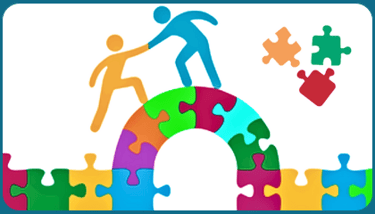Adapt and Overcome or Accept and Fail: A Cultural Exploration
Accept or get to work, solve on problem at a time and overcome!
PERSPECTIVEPOINT OF VIEW
Mark Boatwright-Frost
10/15/20244 min read


Understanding the Cultural Conditioning
Cultural conditioning refers to the process through which societal norms, values, and beliefs are transmitted to individuals, shaping their behaviors and mindsets over generations. This phenomenon has played a critical role in defining human interactions and responses to challenges. Over thousands of years, those in power have leveraged mechanisms of control to maintain the status quo, often benefiting a select few while instilling a sense of limitation among the broader population. Such control has often manifested in the promotion of fear-based beliefs that discourage individuals from pursuing personal growth or challenging the established norms.
The impact of cultural conditioning is profound, embedding itself in the perceptions individuals hold about their strengths and capabilities. For instance, when society consistently emphasizes failure and inadequacy, individuals internalize these messages, viewing themselves through a lens of limitation. This mindset does not only restrict personal growth but also fosters a pervasive culture of compliance, where adaptation is seen as a daunting task, and the prospect of overcoming challenges feels insurmountable. Consequently, many individuals may fail to recognize their potential, trapped in a narrative that glorifies mediocrity and compliance with societal standards.
Moreover, cultural conditioning often perpetuates stereotypes that define what is deemed achievable by different groups. Whether rooted in ethnicity, gender, or economic status, these stereotypes can induce a sense of inferiority, further entrenching fear and acceptance of failure as a natural consequence. This ingrained belief system inhibits the willingness to explore alternatives or embrace change, reinforcing the barriers to personal and collective empowerment. Ultimately, understanding the complexities of cultural conditioning sheds light on the deep-seated challenges individuals face when it comes to adapting and overcoming adversities, emphasizing the need to re-evaluate these beliefs and their origin.
The Dangers of Accepting Limitations
The acceptance of limitations is often seen as a pragmatic approach to life; however, it can lead to serious consequences that hinder personal and collective growth. When individuals or communities succumb to the belief that their capabilities are fixed, they are ultimately endorsing a mindset that fosters complacency. This acceptance often results in a lack of ambition and stunts progress. In many instances, the failure to challenge perceived boundaries can create a cycle of inactivity that becomes increasingly difficult to escape.
Consider, for instance, educational systems that adopt a fixed mindset, believing some students are inherently less capable of achieving success. This perspective can significantly impact student performance and self-esteem, leading them to accept mediocrity instead of striving for excellence. Furthermore, in corporate environments, organizations that fail to innovate due to a reluctance to embrace change can swiftly find themselves outpaced by more adaptive competitors. The belief that certain practices or technologies are insufficient leads to stagnation, ultimately resulting in failure.
The psychological impacts of accepting limitations further exacerbate the issues at hand. When individuals repeatedly experience failure, they may develop a defeatist attitude, believing that their efforts are futile. This perception may inhibit them from taking risks or trying new approaches, creating a self-fulfilling prophecy. Over time, individuals not only internalize failure but also become trapped in a cycle of inaction, convinced that they will not succeed. This mindset can permeate through communities, eroding the collective spirit and diminishing the potential for growth.
Breaking free from this limiting mentality is essential for improvement. Recognizing the adverse effects of complacency and defeat can empower individuals and communities to challenge their boundaries and strive toward greater achievements. Embracing a mindset oriented toward growth, rather than acceptance of limitations, is critical in overcoming obstacles and fostering resilience.
The Power of Adaptation and Overcoming Challenges
Adaptation is a fundamental aspect of human resilience, enabling individuals to face adversity and emerge stronger. When confronted with challenges, one's ability to adapt can significantly influence outcomes. Embracing difficulties rather than succumbing to them fosters personal growth and development. It is through the lens of adaptation that we can transform setbacks into opportunities, illustrating the human capacity for resilience.
Consider the stories of individuals who have experienced significant hardships, yet have managed to utilize those experiences as stepping stones for success. For instance, many entrepreneurs have encountered failures before achieving success, with each setback presenting a lesson that informed their future decisions. This adaptability not only demonstrates a powerful mindset shift but also showcases the importance of learning from challenges. In this context, adapting becomes a strategic approach, encouraging continuous improvement even in the face of adversity.
Furthermore, community support plays a critical role in fostering adaptability. When individuals experience challenges, the backing of a supportive community can enhance their capacity to overcome. Sharing experiences, seeking guidance, and receiving encouragement from others can create a collective environment that nurtures resilience. This interconnectedness amplifies individual strengths, making it possible to face hardships with greater fortitude. As a result, communal support systems can empower individuals to cultivate adaptive strategies, reinforcing the notion that together, we are better equipped to manage challenges.
Ultimately, embracing the power of adaptation and fostering resilience can shift our focus away from acceptance and failure. By actively engaging with difficulties and seeking growth opportunities, individuals may unlock their potential to thrive. This proactive mindset can inspire others to reconsider their own adaptive capacities, leading to a more resilient society where challenges are met with determination and optimism.
Building Relationships for Empowerment
In today's interconnected world, the relevance of building relationships cannot be overstated, especially when it comes to fostering an environment conducive to adaptation and resilience. Establishing and nurturing meaningful connections is vital for individuals seeking to navigate life's challenges effectively. A strong support network not only encourages collaboration but also facilitates the sharing of resources and knowledge, proving essential for collective problem-solving.
One practical strategy to enhance relationship-building is through active listening. Practicing active listening involves fully concentrating on the speaker, understanding their message, and responding thoughtfully. This approach fosters trust and openness, enabling individuals to express their concerns and collaborate on solutions. By listening to diverse perspectives, one can gain insights that might otherwise remain overlooked, enhancing the capacity to overcome barriers together.
Moreover, engaging in community activities can significantly contribute to establishing lasting relationships. Whether through volunteering, joining local organizations, or participating in cultural events, these opportunities allow individuals to connect with others who share similar goals and values. In doing so, participants can cultivate a sense of belonging and empowerment, reinforcing the support network that is crucial during challenging times.
Additionally, creating inclusive spaces where everyone feels valued and heard is paramount. This can be achieved by promoting dialogue and encouraging participation from all community members, thus ensuring diverse voices are amplified. Such inclusivity not only strengthens relationships but also fosters a culture of solidarity, enabling individuals to adapt and overcome obstacles together.
In conclusion, prioritizing relationship-building is essential for personal and collective growth. By nurturing connections and supporting one another, individuals can create a robust framework that enhances resilience, paving the way for empowerment and success in facing life's challenges.
Thoughts on a human future... ~Mark Boatwright-Frost
The Resilient Community Movement
In today's ever-changing world, the importance of fostering resilience within neighborhoods and communities cannot be overstated. By facilitating connections among residents, we empower individuals to share their stories and experiences, creating a strong support network. This collaborative spirit not only enhances the well-being of community members but also amplifies their voices, ensuring that their unique human needs are recognized and addressed.
Contact and Connect
info@reseco.org
© 2024. All rights reserved.
